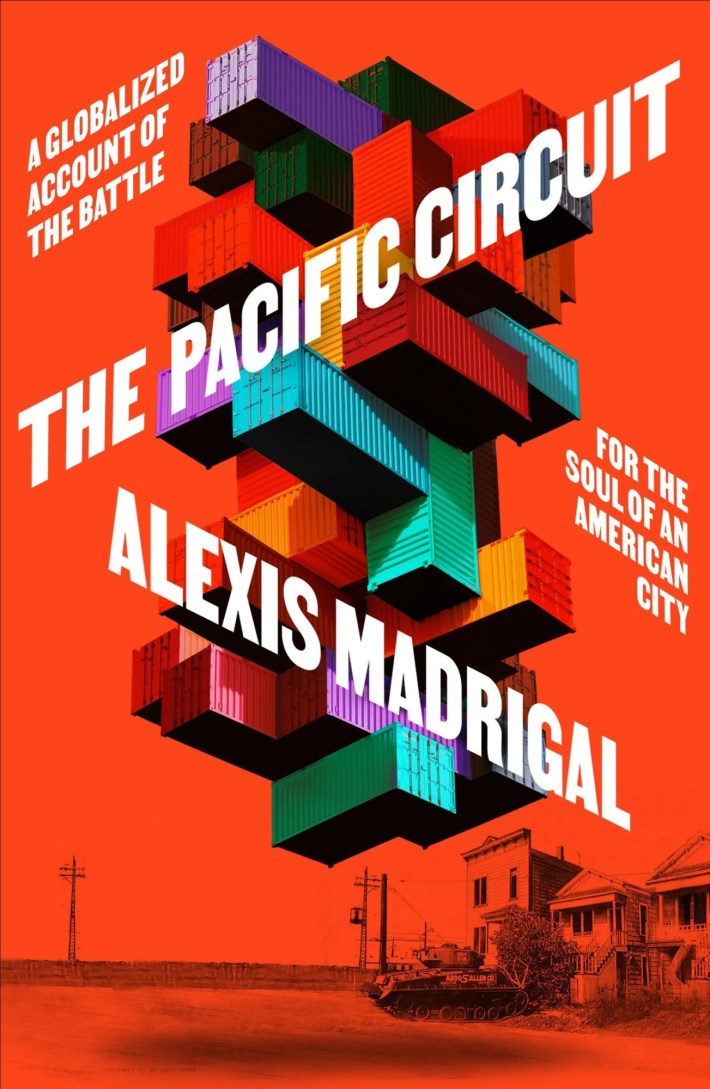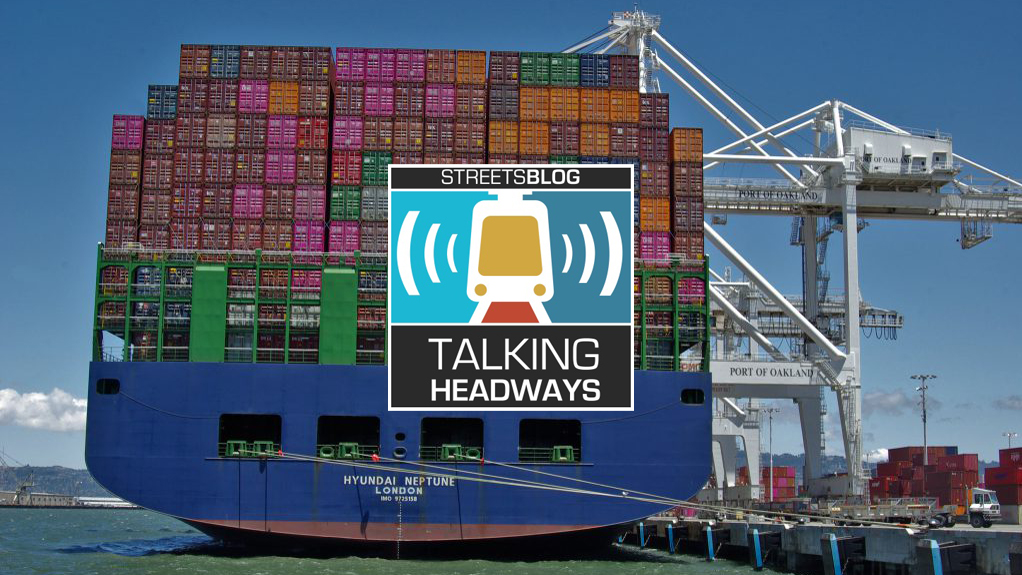This week on the Talking Headways podcast, we’re joined by journalist and host of KQED’s Forum Alexis Madrigal to discuss his book The Pacific Circuit: A Globalized Account of the Battle for the Soul of an American City.
Alexis connects containerization to globalization and its direct impacts on an Oakland neighborhood.
We also chat about histories of determining blight, silicon valley's part in global trade, and why we need new thinking about urban change.
Scroll down below the audio player for an edited excerpt of our conversation, or click here for an unedited, AI-generated transcript of the entire conversation.
Jeff Wood: So West Oakland, basically, then, is rated as a blight, and so all of these things are then done to it because it is the place where the blight is: So we need to renew it. We need to put a highway through. There's a port there. In the future, there may be like a coal terminal. There's just, like, a whole bunch of stuff that comes down the pipe for West Oakland.
Alexis Madrigal: Absolutely. Yeah. I think that blight designation opens the door to a lot of things, in part because it destroys so much of the community that would have had quite an amount of substantial social and political power in that place. That it makes it much easier for the authorities in Oakland who are really committed to capturing the trade from Asia, which they do quite accurately foresee coming in the early 1950s, so that when a guy named Ben Nutter, who's, like, the Robert Moses of the Port of Oakland, begins to put together a plan to steal San Francisco's trade and route it into containers. There's not really a lot of anybody to stop him. There's an amazing oral history at the Bancroft Library with him where both he and also his successor in the port sort of wax rhapsodic about the time before community groups could do anything about what they wanted to do.

And they do basically begin to put in a container port, which requires hundreds of acres of storage for containers because it's not like the thing comes right off the boat and like onto the semi-truck that like takes it to the Target distribution center. It has to go to a place, and then trucks come pick it up and it moves on.
And so you need all this storage. And along with the storage, you also need the trucks to take it places, and that really becomes this very central feature of life in West Oakland. I was doing an event with Noni Session, who's also in the book, but grew up in West Oakland, and she was just recalling from her childhood in the 1980s that just, like, the trucks were everywhere, they're idling everywhere, they're up on sidewalks. Particulate matter, we know it was very bad for people, and these are old trucks that have largely formerly been, like, long distance trucking and they've moved over to this kind of drayage thing, so you've got old, dirty trucks all over your neighborhood. They're loud. It gives the kids asthma. It is like a whole series of things, environmental problems that come from this.
It's worth not noting one other component of what happened to West Oakland, too, which is that the city has long wanted this [land] for industrial development and the fact that people happen to live there wasn't something that the city took for granted. As early as the mid-1930s, the city is trying to like explicitly say, we want to crowd people out of here by putting more industrial uses around, even though that is going to degrade the quality of housing in West Oakland.
So you basically have the city saying, all the way from the '30s, we're gonna pollute the people who live here. So they leave. And they also said, we're gonna segregate them with a freeway, which they also did. And so this neighborhood has had such a wide variety of things done to it in the post-urban renewal era, like, into the '80s and '90s.
Of course now the government is just — "I'm not sure we're gonna clean all this stuff up. I'm not sure we're gonna be able to change these things." And I think that's always been a major frustration of residents in this era of great American state capacity fully brought to bear on West Oakland and in, what people call, like, the neoliberal era, etc. Now the government goes, "The market does these things, not us." And neighborhood activists and other people have really had to work to find the kind of handles on power such as they exist in a place like West Oakland.
Jeff Wood: “Anything can happen, but nothing can be done.”
Alexis Madrigal: Yeah. That is a Polish theorist named Zigmund Bauman. It's this kind of theory of liquid modernity, and I think for me, that just struck me. All theory, I feel like it's how it matches up against your own experience of the world. It's the first check on it, and I mean, as anything over the last 10 years felt more true than that, anything can happen, but nothing can be done. Hosting a forum [on the radio], day after day, it's can we do anything about homelessness? Not really. How about fentanyl? Nope. Can we build more housing? Nope. Can we change the way that our city transportation infrastructure works? It can only fail. We can't actually make it better. And yet at the same time, all this crazy stuff is happening all the time. Maybe there's artificial general intelligence on the horizon. Maybe there's gonna be a pandemic, former reality TV show host won the presidency and now may or may not be setting up an authoritarian state inside the United States.
Like the amount of things that can happen now seem just tremendous. And yet the governmental resources and things at the local level where it feels like you could actually do something about that feel more or less non-existent. And I think there's actually a reality to that.






